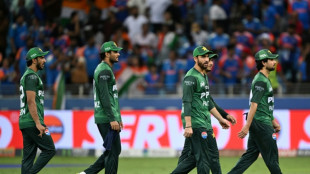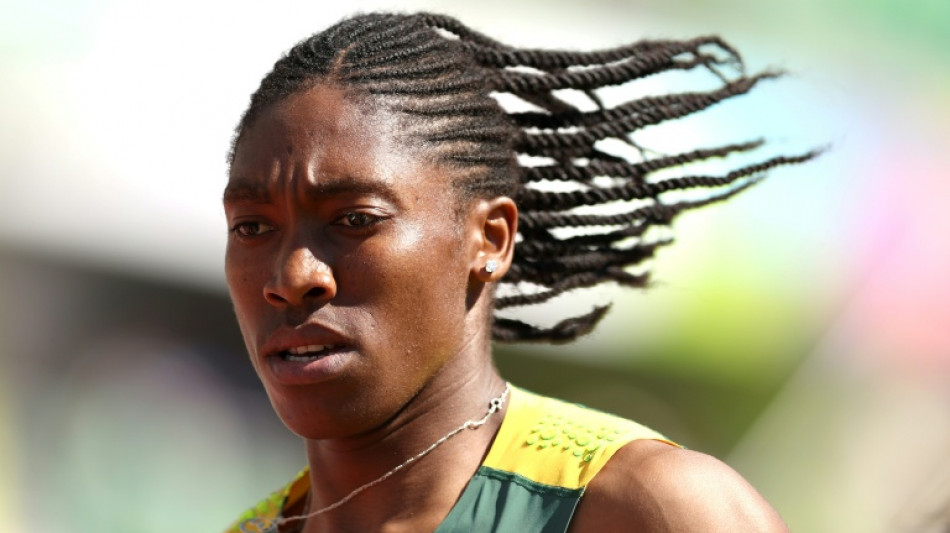
-
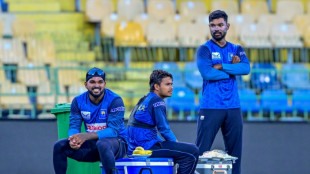 Sri Lanka's Wellalage told of dad's death moments after win
Sri Lanka's Wellalage told of dad's death moments after win
-
Norris on top ahead of Piastri in opening Baku practice
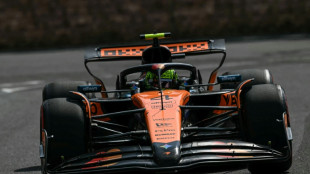
-
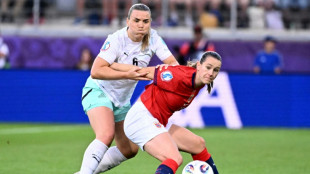 Terland hat-trick fires Man Utd into Women's Champions League
Terland hat-trick fires Man Utd into Women's Champions League
-
Stars Tim Burton, Monica Bellucci announce separation
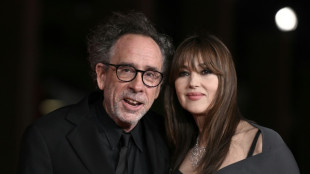
-
 What to look for in China and Europe's climate plans
What to look for in China and Europe's climate plans
-
India target record Asian Games medal haul as LA 2028 beckons
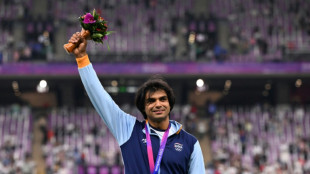
-
 Tracing the 'Green Sahara' in Chad's northern desert
Tracing the 'Green Sahara' in Chad's northern desert
-
Asian markets mostly drop ahead of Trump-Xi talks

-
 US comics slam 'censorship' after Kimmel pulled
US comics slam 'censorship' after Kimmel pulled
-
China's Xiaomi to remotely fix assisted driving flaw in 110,000 SU7 cars
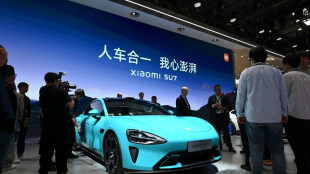
-
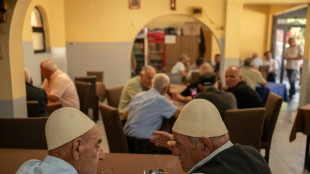 Brewing battle: coffee booms in tea-loving Kosovo
Brewing battle: coffee booms in tea-loving Kosovo
-
Dortmund on lookout for leaders as familiar cracks emerge

-
 BoJ holds interest rates but to sell funds in shift from easing policy
BoJ holds interest rates but to sell funds in shift from easing policy
-
Real Madrid aiming to stay perfect against impressive Espanyol

-
 Georgia's Niniashvili aims to stay 'crazy' at new club La Rochelle
Georgia's Niniashvili aims to stay 'crazy' at new club La Rochelle
-
Latinos, ex-military, retirees -- ICE hopefuls answer Uncle Sam's call

-
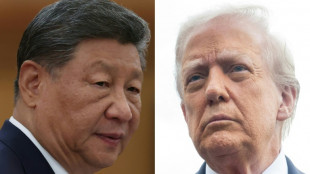 Trump hopes to settle TikTok's fate on Xi call
Trump hopes to settle TikTok's fate on Xi call
-
East Germany's empty towns try to lure people with 'trial living'

-
 Liverpool crave easy win in Merseyside derby as Arsenal seek Man City hat-trick
Liverpool crave easy win in Merseyside derby as Arsenal seek Man City hat-trick
-
Australia skipper Cummins says 'hopeful' he'll take part in Ashes
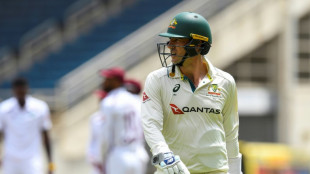
-
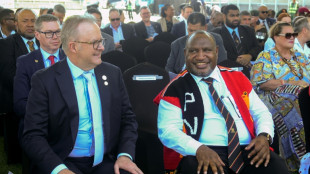 China warns Papua New Guinea over Australian defence deal
China warns Papua New Guinea over Australian defence deal
-
Australian state bans testing of illicit drugs
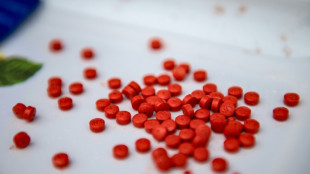
-
 Philippines 'ghost' flood projects leave residents stranded
Philippines 'ghost' flood projects leave residents stranded
-
Asian markets fluctuate as focus turns to Trump-Xi, BoJ

-
 North Korea's Kim oversees drone test, orders AI development
North Korea's Kim oversees drone test, orders AI development
-
Kenya eye double gold on penultimate day of world championships
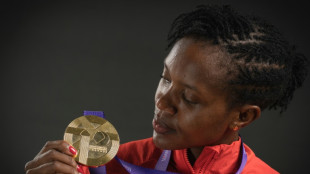
-
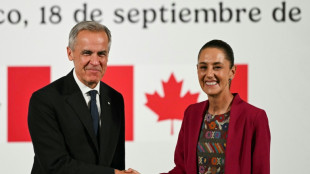 Canada, Mexico leaders agree to seek 'fairer' trade deal with US
Canada, Mexico leaders agree to seek 'fairer' trade deal with US
-
How did an Indian zoo get the world's most endangered great ape?

-
 Amid emotional retirement reveal, Kershaw focused on beating Giants
Amid emotional retirement reveal, Kershaw focused on beating Giants
-
Dodgers pitching icon Kershaw to retire after 18th MLB season

-
 Netflix seeks 'Money Heist' successor in Spanish hub
Netflix seeks 'Money Heist' successor in Spanish hub
-
Taiwan running out of time for satellite communications, space chief tells AFP

-
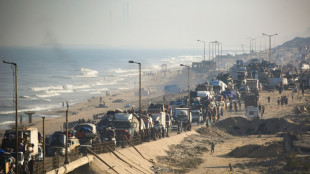 Gaza, Palestinian future to dominate UN gathering
Gaza, Palestinian future to dominate UN gathering
-
Young plaintiffs stand tall after taking on Trump climate agenda in court

-
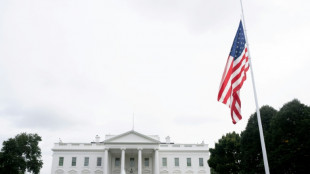 Kirk killing sparks fierce US free speech debate
Kirk killing sparks fierce US free speech debate
-
Eying bottom line, US media giants bow to Trump

-
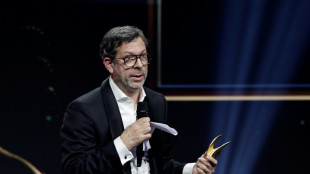 Indie studio bets on new game after buying freedom from Sega
Indie studio bets on new game after buying freedom from Sega
-
Marseille hoping to catch PSG at the right time in Ligue 1

-
 Japan inflation slows in August, rice price surges ease
Japan inflation slows in August, rice price surges ease
-
Court seizes assets of Maradona's lawyer, sisters in fraud case
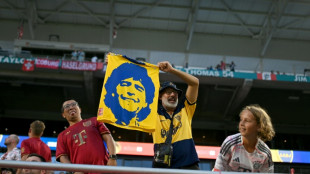
-
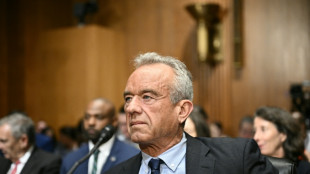 RFK Jr panelists make initial changes to childhood vaccine schedule
RFK Jr panelists make initial changes to childhood vaccine schedule
-
Progress stalled on Canada's pollution reduction goal

-
 UN Security Council votes on reimposing Iran nuclear sanctions
UN Security Council votes on reimposing Iran nuclear sanctions
-
Depleted France eager to 'throw sand in England's machine' in World Cup semi-final
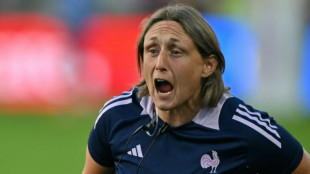
-
 Barcelona beat Newcastle, Man City see off Napoli in Champions League
Barcelona beat Newcastle, Man City see off Napoli in Champions League
-
Texans' Ward won't face domestic violence charges

-
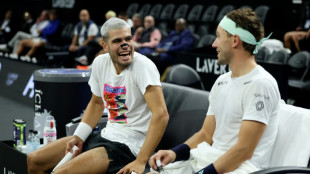 Alcaraz headlines Team Europe in Laver Cup title defense
Alcaraz headlines Team Europe in Laver Cup title defense
-
Rashford bags first Barca goals to seal win at Newcastle

-
 Haaland hits 50 Champions League goals in Man City cruise over 10-man Napoli
Haaland hits 50 Champions League goals in Man City cruise over 10-man Napoli
-
Dodgers pitching icon Kershaw to retire - club


Caster Semenya: A rebel with a cause
When 19-year-old unknown South African Caster Semenya pulled off a stunning 800 metres final triumph at the 2009 world championships in Berlin, she could never have imagined the drama that would follow.
She had barely touched the tape to claim gold when controversy erupted over whether she should have been allowed to compete. Some rivals questioned whether she was a woman.
Officials reacted by forcing Semenya to have a sex test, and it was not until the following year that the woman born in a northern village could run again.
Recalling the sex test to a London audience, Semenya said "being told you are not woman enough can be disturbing".
Now 34, Semenya was born with differences of sexual development (DSD) and some opponents believed her biological make-up gave her an unfair advantage.
Later, when Semenya refused to take drugs to supress testosterone, a hormone that increases muscle mass, strength and endurance-enhancing haemoglobin, she was banned by World Athletics.
She collected 800 metre gold medals at the 2012 and 2016 Olympic Games in London and Rio de Janeiro -- the first after Russian winner Mariya Savinova was belatedly disqualified over doping.
Semenya also struck gold over her favourite distance at world championships in Berlin, South Korean city Daegu and London.
But instead of basking in the glory of becoming a middle-distance track queen, she became embroiled in a string of legal battles just to compete.
Previously, when Semenya took testosterone-reducing medication, the athlete told South African media she suffered "hell".
"When you are desperate (to run), you will do anything to get what you want. The medication was not designed for my body because I am different.
"I am a woman who is different, I do not have a uterus, I do not have fallopian tubes. I was never happy (taking the medication), it irritated me, I was not myself."
As the years passed, relentless Semenya exchanged her 'golden girl' status among South Africans and became a rebel with a cause.
Her frustration heightened when an initial World Athletics ban covering middle-distance races extended to all track events.
- 'Gross violation' -
She labelled the move a "gross violation of human rights. What is at stake here is far more than the right to participate in a sport.
"Women's bodies, their wellbeing, their ability to earn a livelihood, their very identity, their sense of safety and belonging in the world are being questioned."
But while Semenya railed against World Athletics, the organisation refused to budge, and Semenya missed the 2024 Paris Olympics.
"DSD regulations are a necessary, reasonable and proportionate means of protecting fair competition in the female category," said the international body.
Taking the legal route to try and overturn the ban, Semenya lost cases at the Court of Arbitration for Sport (CAS) and the Swiss Federal Tribunal (SFT).
The European Court of Human Rights (ECHR) took a different view, though, by a 4-3 majority. They said the Semenya appeal had not been properly heard.
"The applicant had not been afforded sufficient institutional and procedural safeguards in Switzerland to allow her to have her complaints examined effectively," the ECHR said.
SFT, supported by World Athletics, appealed the decision, leading to a two-year wait before the 17-judge ECHR Grand Chamber gave its ruling and found again in her favour.
"We need to respect athletes, we need to put their rights first... It's just a reminder to the leaders to say priorities lie in the protection of athletes," she said after the appeal ruling.
While several South African athletes approached by AFP over the issue did not wish to comment, the government and the public have backed Semenya in her crusade against "injustice".
"Our entire history of South Africa has been a struggle for human rights. These (World Athletics) rules have had a negative effect on our golden girl," said then sports minister Tokozile Xasa.
As Semenya suffered setbacks, she could rely on the support of her parents, three sisters and one brother. "The relationship I have with my family is special," she said.
H.Kuenzler--VB

